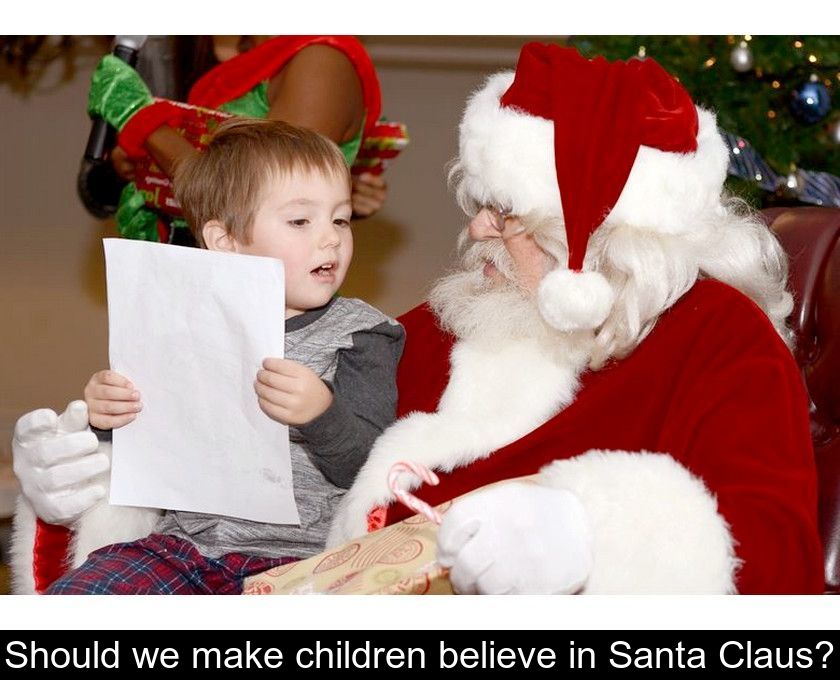Should We Make Children Believe In Santa Claus?
In this month of December, young children have many questions about Santa Claus. How does he manage to deliver all his gifts in one night? Can he still come if the house doesn't have a chimney? Perhaps you don't know what to tell them and wonder if you are right to perpetuate the myth... On the question "Should we make them believe in Santa Claus?" opinions vary. We propose to review the various possible answers.
Is it serious to lie to them?
For some parents, making children believe in the existence of Santa Claus is equivalent to lying to them.
Some adults indeed still remember their disappointment when they found out the truth, or they want to eliminate any form of deception from their children's upbringing.
However, according to most experts, mythical characters like Santa Claus, the tooth fairy who visits when a tooth is lost, or the Easter bells that bring chocolates are not really lies, but rather tales.
It should also be noted that before the age of 4 or 5, children cannot distinguish reality from imagination. At that age, maintaining a certain ambiguity is not problematic and even helps the child develop their imagination, as they do by listening to stories and inventing their own.
How do I talk to them about it?
To foster belief in Santa Claus while preparing children to eventually learn the truth, the best approach is to talk about him as a fairy tale hero. One can use the conditional tense to tell his story, for example: "There might be a bearded man in Lapland, dressed in red, who makes toys with his elves..."
And if you then encounter Santas on the streets or in stores, you can explain to questioning children that those seen in public are impostors or simply representatives of the real Santa Claus.
To preserve the myth in all its wonder, child psychologists also advise against using this character to enforce obedience. The white-bearded man is not Father Whipper. His role is not to judge and punish, but rather to embody the generosity that is characteristic of the Christmas spirit. In short, it's better to refrain from telling your child "If you're not good, Santa won't come!"
Until what age can they believe?
Generally, it's between the ages of 6 and 10 that children start to doubt the existence of Santa Claus. Indeed, it is at this age that they gradually move away from their childhood imagination to enter more into the real world.
When they begin to question and doubt the existence of this character, it is better to tell them the truth... gently.
However, as long as your child believes, you can maintain the magic of Christmas by tracking Santa live on the website and mobile app noradsanta.org, or by playing with Google Santa Tracker to pass the time until December 25th (see the link below).
How do I tell them the truth?
When a child starts to doubt, all experts agree that we should support them on their journey towards the truth. You can explain that the man in the red suit is not a real person, but a character like the heroes from fairy tales, cartoons, or even superheroes...
You can also highlight that he embodies the generosity and love that parents have for their children, and these feelings are indeed very real. You'll find that most children accept this revelation well and, once they know the truth, they are eager to continue the myth for younger ones.
A child who is let in on the secret will feel like they are growing up. They can then take on the responsibility of preserving the secret and the magic of Santa Claus for their younger siblings or cousins... In fact, according to some child psychologists, Santa Claus is part of those rituals that help children grow. Stopping believing in him is like moving out of early childhood and experiencing reality.








